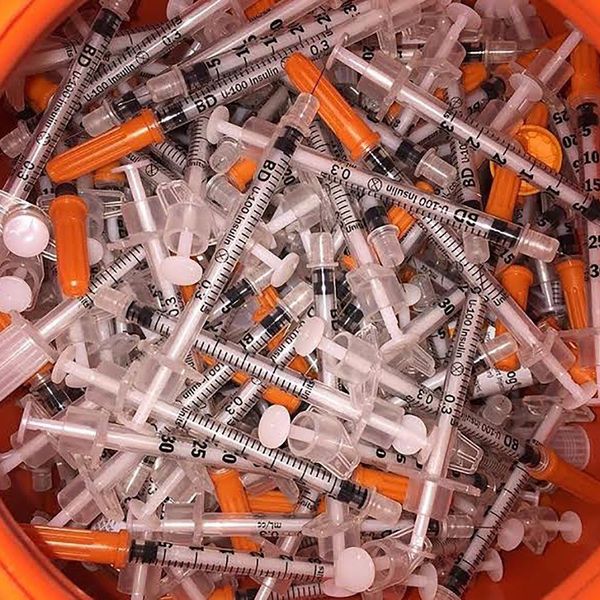College can be a big change for anyone. Factor in a chronic autoimmune disease, and you have a recipe for panic. I’ve had diabetes for almost nine years now, and when I started college last year I was really nervous about how college life would affect my diabetes and my overall health. It took a while for me to figure out the nuances of diabetes management in college, and I wish that I had had someone to help guide me through it. I’ve tried to put together a list of advice that I would give to any diabetics making the transition to college, and here they are:
1) Make sure you have extra EVERYTHING!
Recently, I ran out of insulin in the middle of changing a site, leaving me with a day's worth of insulin and no extra bottles in the fridge. Luckily, after a panicked call to mom and a emergency trip to CVS the next morning, I was good to go. In hindsight, I should have filled my prescription sooner. To avoid the panic, make sure that you have all of your supplies and prescriptions ready before you start school.
2) Know where the nearest pharmacy is.
Just in case you aren't as prepared as you think you are, or if you need to get any of the numerous prescriptions that come with Diabetes filled. You can also by snacks here, which is very important as well.
3) Carb counting is hard.
Unless your dining hall leaves a carb count next to everything, then this is true for every college; even if you just stopping by your campus' coffee shop for the caffeine that you will need (it's part of the college student's job description). I suggest downloading the free Calorie King app on your phone, because it will be a life saver when you order pizza at 10 pm.
4) Granola bars are your best friends...
They're the perfect size to stick in your backpack, and just the right amount of carbs to keep your blood sugar up in between classes; especially because you will probably experience a lot of varying blood sugars during the first week of classes.
5) ...So are mini sodas.
I went low in the midst of writing this article, and I had one of these bad boys on hand. They're the perfect amount of carbs for quickly raising a low, and they don't take up as much space as a 12 pack of regular size sodas does.
6) Talk to your RA.
Odds are your roommate probably won't know much about diabetes. (If they do, they are instantly the best RA ever.) Make sure you let your RA know, just so they have that info stored away in case of an emergency.
7) Get accommodations.
This might sound weird, but it's probably the most important piece of advice I can give you (next to remembering your supplies; don't run out of insulin like I did). Having academic accommodations will save you in any situation where you can't make it to class, can't take a test, or forget to do something because of a low or high blood sugar. It's good to have a safety net.
8) Don't forget to test!
Now I sound like I'm nagging. This is probably really obvious, but once you start classes, you're running around campus, and sometimes you'll forget to test in the midst of your rush. This can be especially important during the first few weeks, because you'll probably experience a lot of spikes and drops until you adjust your insulin dosages to fit your new lifestyle.
9) Join Diabetes Club.
Yes there is such a thing, and it is awesome. It's a built in support system that will help you a lot in college. If your school doesn't have one, think about starting one yourself! The College Diabetes Network offers a lot of resources that you can use.
10) Keep all your supplies in one place.
Not only will this help you know where everything is, but it'll help keep your room stay a lot more organized. College dorms aren't know to be large or contain a lot of storage space, so you'll want a safe and sanitary place to keep all of your supplies.
Yes, Diabetes will have a big impact on your college experience, just like it has the rest of your life. The important thing is to make sure that it doesn’t take over your life. Join a sports team, join clubs, and get a work study. Enjoy every opportunity that comes your way, and meet the challenges you face head on!
I hope that these pieces of advice helped you in one way or another, or at least eased your mind a little. As you go through college, you will find what will and won’t work for you, and that could change from week to week or month to month. The important thing is to stay healthy and enjoy the experience






















